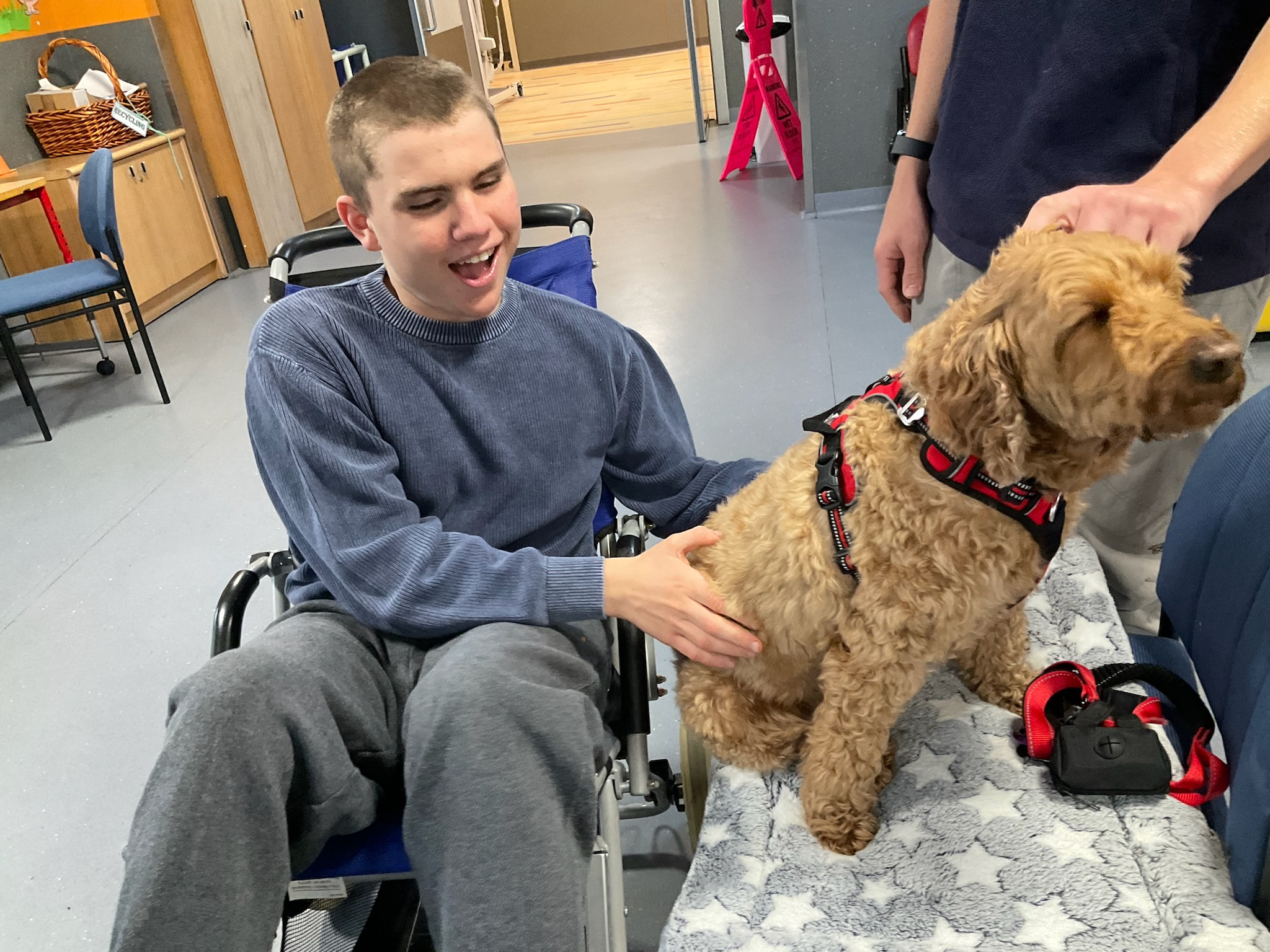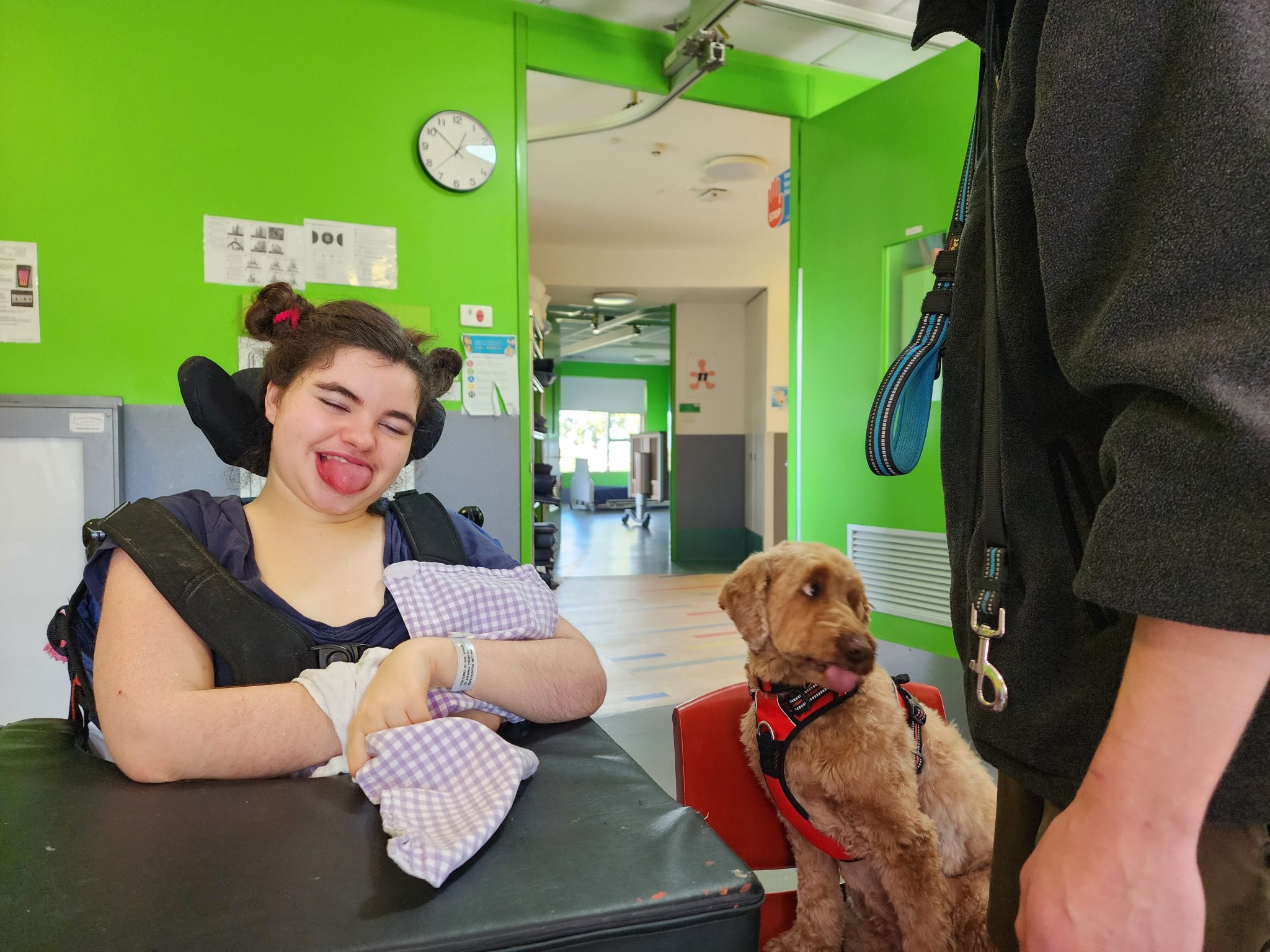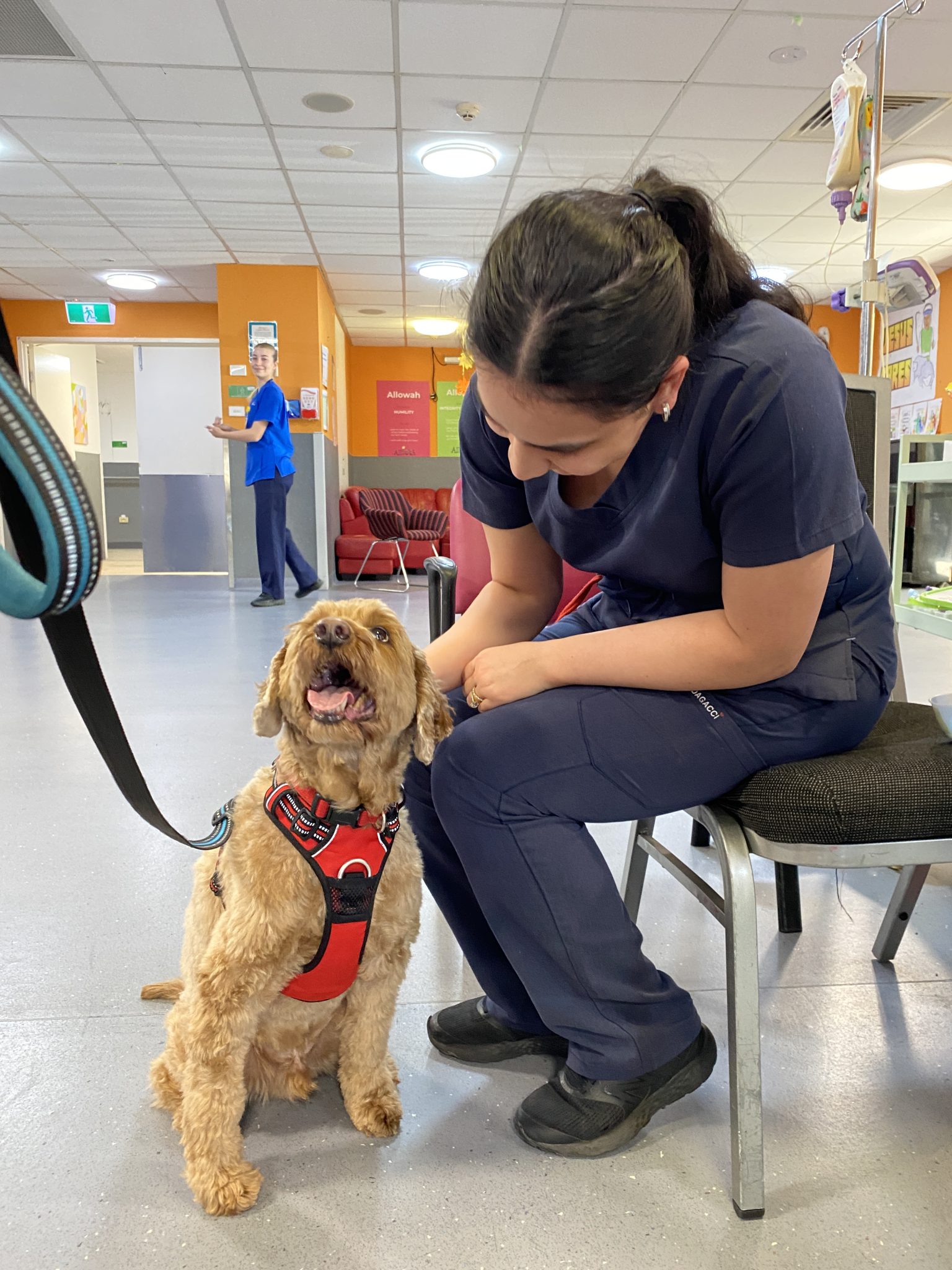


"The little girl was so happy to see Benny - she kept talking to him, telling others about him and patting him. It was so great to see her so engaged!"



Therapy dogs provide a unique and deeply impactful form of support, bringing joy and therapeutic benefits that are hard to replicate. For the kids and young people at Allowah, Benny the therapy dog has been a beloved visitor since 2015, creating moments of connection, comfort, and encouragement. Research consistently shows that animal-assisted therapy can profoundly impact the well-being of children with complex disabilities. Benny’s recent visits, like his appearance during Allowah’s “Space Week,” serve as a testament to the importance of these interactions.
Emotional Connection and Joy
Therapy dogs create emotional bonds that alleviate stress and anxiety. Studies indicate that animal-assisted therapy can lower cortisol levels (a stress hormone) and reduce stress by up to 40% in children with disabilities (Sobo et al., 2006). When Benny comes to Allowah, he brings joy and a comforting break from routine, allowing the children to feel a sense of connection and happiness. During “Space Week,” Benny’s visit, complete with his own spacesuit, created unforgettable memories and elevated spirits among the children, staff, and visitors.



Social Engagement and Communication
Therapy dogs help children improve social skills, with evidence showing that kids and young people with complex disabilities, for example, display increased positive behaviours like smiling, speaking, and eye contact around therapy animals (O’Haire et al., 2013). At Allowah, the young people engage with Benny through petting, talking, or following him with assistance, fostering social play and communication. Research also shows that therapy animals can boost communication by 38% in children with disabilities, enhancing social engagement in a natural and supportive way (Friesen, 2010).
"The little girl was so happy to see Benny - she kept talking to him, telling others about him and patting him. It was so great to see her so engaged!"
Sensory Stimulation and Physical Benefits
For children with complex disabilities, sensory processing can be a challenge. Therapy dogs offer safe, controlled sensory experiences—through the texture of their fur, the warmth of their bodies, or even the rhythmic pattern of their breathing. According to the American Journal of Occupational Therapy, therapy animals can help children with sensory sensitivities feel more at ease with physical touch and new sensory inputs (Velde et al., 2005). This interaction with Benny provides a rich sensory experience that supports the children’s sensory development, creating a comforting and enjoyable environment for them.



Physical Engagement and Fine Motor Skills
Pet therapy also aids physical development, providing chances for children to practice fine motor skills. Animal-assisted therapy has been shown to improve fine motor skills in children with disabilities by as much as 34% (Nimer & Lundahl, 2007). Activities such as brushing Benny, petting him, or guiding him in simple commands allow children to engage in hand movements that strengthen fine motor control. These interactions encourage children to be more interactive with their surroundings and support their physical development in a way that feels fun and natural.
Each time Benny visits, he leaves a lasting mark—bringing therapeutic benefits, joy, and comfort to all. His impact shows how transformative a therapy dog’s companionship can be, offering sensory engagement, emotional support, and happiness to the Allowah family.
Therapeutic History and Family Connection
Benny’s connection to Allowah carries a legacy. He continues the loving work of Toby, a previous therapy dog, who brought joy to Allowah children for years. Benny’s best friend and caretaker, Josh, now a support worker at Allowah, grew up seeing the impact of therapy animals. This continuity deepens the therapeutic impact of Benny’s visits, symbolising the lasting nature of love, care, and support at Allowah. It also highlights that therapy dogs bring benefits not only through direct interaction but also by fostering a caring community.

